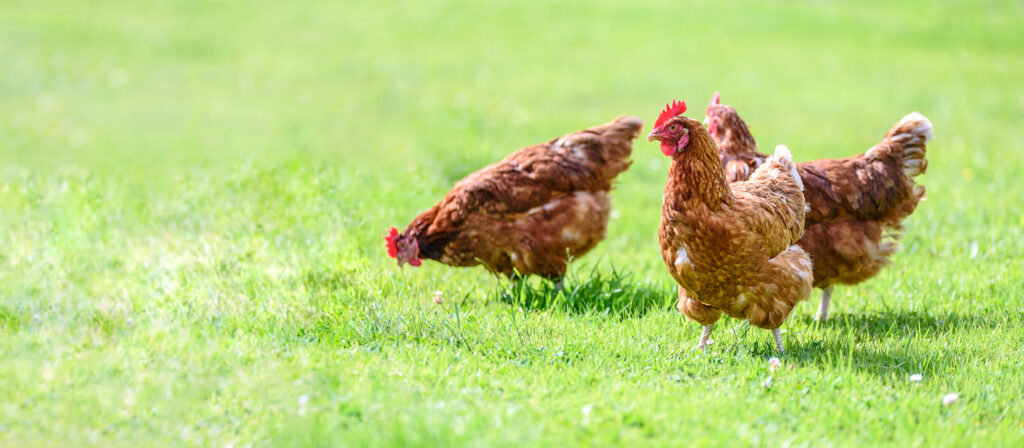Avian flu prevention zone declared across GB
17th October 2022
After an increase in the number of confirmed avian influenza cases, the UK’s chief veterinary officers have declared an AIPZ across the whole of Great Britain to mitigate the risk of disease spread.
From midday today (17th October) it became a legal requirement for all bird keepers in Great Britain to follow strict biosecurity measures to help protect their flocks from the threat of avian flu.
The AIPZ does not yet include a nationwide requirement to house birds, but this is being kept under constant review.
Defra argues that implementing high levels of biosecurity measures on farm is the most effective way to reduce the risk of disease spreading within flocks.
More than 30 cases of avian flu have so far been confirmed since the beginning of October, with the East of England hit particularly hard. There have also been outbreaks in the South West and in wild birds at multiple sites across Great Britain.
The UK has seen a total of 190 cases since late October 2021.
Keepers with more than 500 birds will need to restrict access for non-essential people on their sites; workers will need to change clothing and footwear before entering bird enclosures; and site vehicles will need to be cleaned and disinfected regularly to limit the risk of the disease spreading.
Backyard owners with smaller numbers of poultry including chickens, ducks and geese must also take steps to limit the risk of the disease spreading to their animals.
A regional housing order and additional biosecurity measures are already in place in Norfolk, Suffolk and parts of Essex.
In a joint statement the chief vets for England, Scotland and Wales said: “Bird keepers have faced the largest ever outbreak of avian flu this year and with winter brings an even more increased risk to flocks as migratory birds return to the United Kingdom.
“Scrupulous biosecurity and hygiene measures is the best form of defence, which is why we have declared an Avian Influenza Prevention Zone (AIPZ) across Great Britain, meaning that all bird keepers must take action to help prevent the disease spreading to more poultry and other domestic birds.
“The introduction of an AIPZ means regardless of whether you keep a few birds or thousands, you are legally required to meet enhanced biosecurity requirements to protect your birds from this highly infectious disease.”
The risk level for avian influenza incursion in wild birds in Great Britain has been raised from ‘medium’ to ‘high’. For poultry and captive birds the risk level has been raised from ‘medium’ to ‘high’ at premises where biosecurity is below the required standards, and from ‘low’ to ‘medium’ where stringent biosecurity measures are applied.
The AIPZ will be in place until further notice and will be kept under regular review. There may be a need to include a mandatory housing order within the AIPZ at a later date, depending on scientific evidence and veterinary advice.
The AIPZ means bird keepers across Great Britain must:
- Keep free ranging birds within fenced areas, and that ponds, watercourses and permanent standing water must be fenced off (except in specific circumstances e.g. zoo birds)
- Clean and disinfect footwear and keep areas where birds live clean and tidy
- Minimise movement in and out of bird enclosures
- Reduce any existing contamination by cleansing and disinfecting concrete areas, and fencing off wet or boggy areas
- Keep domestic ducks and geese separate from other poultry
- Ensure the areas where birds are kept are unattractive to wild birds, for example by netting ponds, and by removing wild bird food sources
- Feed and water your birds in enclosed areas to discourage wild birds;
Dead wild birds may be infected so don’t touch them unless wearing suitable protective clothing. When found on publicly owned land and a decision is taken to remove them, it is the local authorities’ responsibility to safely dispose of the carcases as animal by-products.
Keepers should familiarise themselves with avian flu advice and report suspicion of disease to APHA on 03000 200 301.

